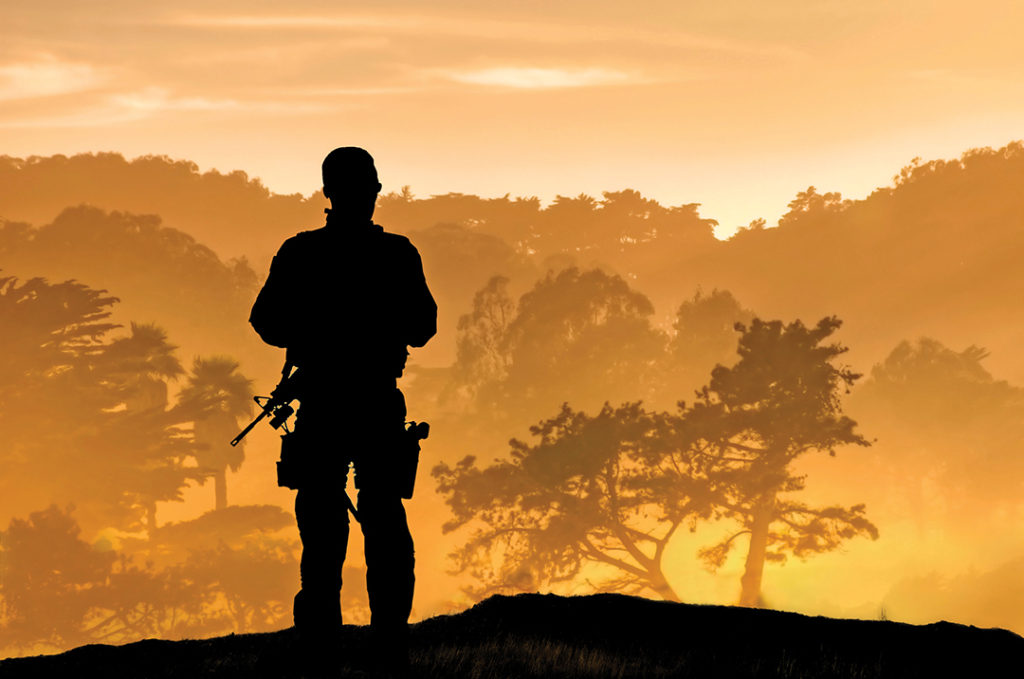To Intervene in Crises and Sustain Missions, African Militaries Must Make Logistics a Priority
COL. UDUAK UDOAKA/U.S. AIR FORCE
A significant development in the post-Cold War period has been African states’ active involvement in peacekeeping operations. Of the 105,078 personnel deployed in support of nine United Nations peacekeeping missions in Africa, more than half are uniformed Africans. Ethiopia, Nigeria and South Africa have the largest contingents of the 38 African countries contributing peacekeepers. Even states that were once devastated by war, such as Sierra Leone, are now deploying peacekeepers.
Despite their provision of troops to U.N. and African-led operations, most African countries remain overwhelmingly dependent on external partners for mobilization and logistics sustainment. Bilateral requests for support are part of an annual cycle of planning and programming or part of a country’s pledged participation in a mission. Requests include airlift movement for troops and vehicles, engineering work, and medical capacity. This chronic dependency continues despite more than two decades of external assistance by international partners. It also persists despite many indicators that African leaders truly want to develop their own logistics capacity.
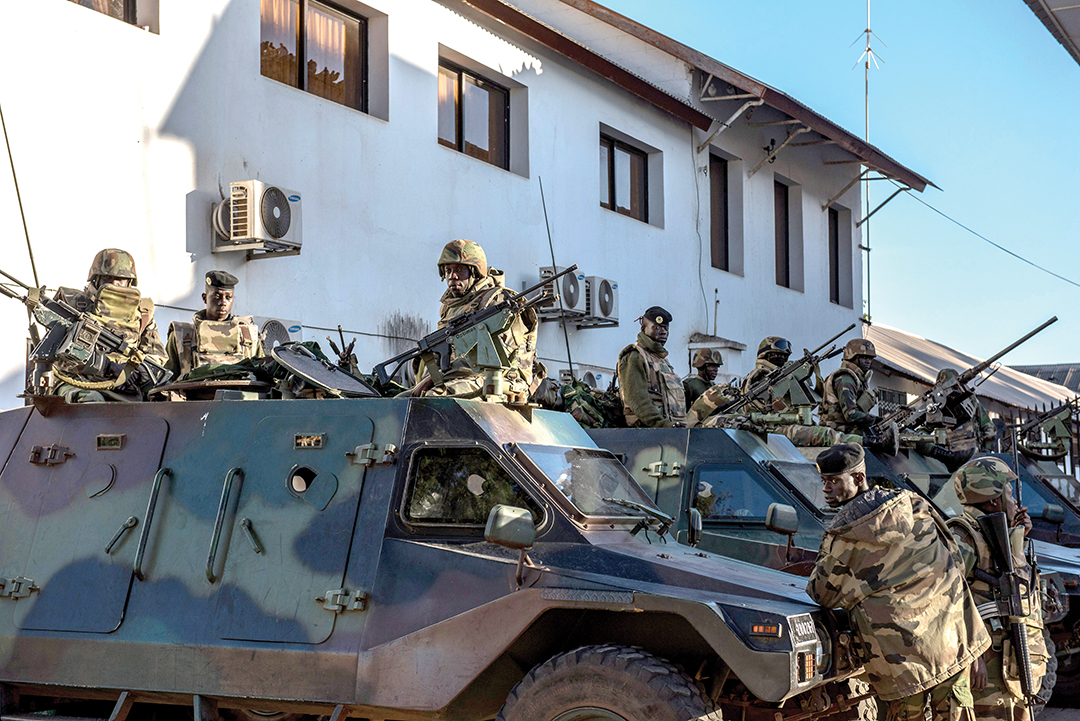
A few factors have impeded the development of logistics capacity on the continent. One is political will. For too long, governments have not prioritized investment in military logistics. Part of this is due to the difficulty in creating a clear and convincing narrative to justify spending money to play nye norske casino. It is easier to persuade politicians to spend money on buying new equipment. Another factor is corruption and a lack of military professionalism. In cultures where cronyism and nepotism are rampant, single-source contracts awarded through personal contacts are common. These result in overpayments and, often, substandard outcomes. Corruption affects the supply of equipment, weapons and the pay of front-line units. It syphons money away from logistical improvements and makes donors and taxpayers less willing to fund military efforts.
Another major limiting factor is the lack of reliable infrastructure in many parts of Africa. Roads, railways, airports, seaports, telecommunications, electricity, water and sanitation facilities all are in short supply. Road transportation is Africa’s intracontinental distribution mode of choice and constitutes about 90 percent of transport between urban areas. Unfortunately, poor surface conditions and delays at border crossings impede responsive logistics support to private and public entities, as well as security forces. When demand for logistics support by military forces depends on unreliable ground support, the materiel required by force commanders is in jeopardy and so is mission success.
To begin to address these and other challenges, I will outline recommendations that can be used in the short term, medium term and long term by Africa’s militaries.
Prioritize professionalism: To sustain logistics capacity and improve capability, militaries must ensure a framework is in place to recruit logisticians and provide regular opportunities to hone the logistics craft through education, training and exercises. Logisticians also must be rewarded for their training and hard work. No amount of capacity will address the logistics challenge in Africa if military salaries are not paid regularly. Logistics is a marketable skill, and a trained Soldier who is not being paid will vote with his or her feet. Many militaries suffer in this regard. An unpaid vehicle mechanic in an African army will not go hungry when there is a commercial demand for mechanics.
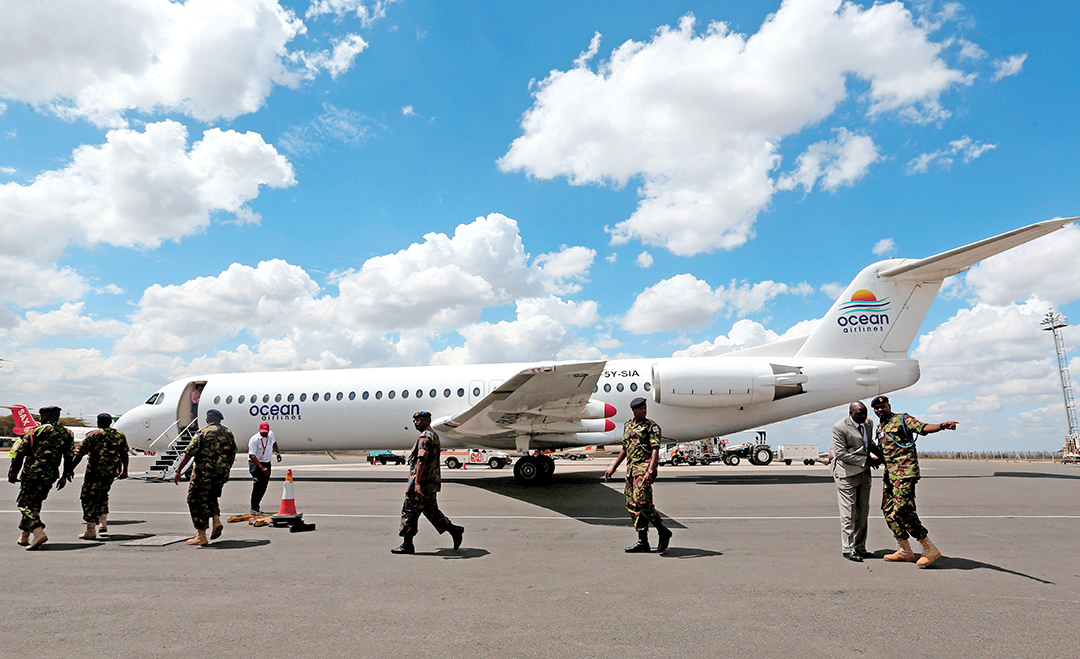
African militaries also must ensure that professional development opportunities exist to advance logisticians to higher ranks. This means adjusting the value system to define success outside of infantry or artillery functions. The United States, for example, has four-star commands centered on logistics and sustainment. This highlights the importance of logistics and offers a track for officer growth and development. With respect to training provided by international partners, many African states lack the institutional capacity to complement and sustain training after it is delivered. The result is an erosion of acquired knowledge and stagnation in capacity. African states such as Egypt, Ghana, Kenya, Nigeria and South Africa recognize the importance of retaining skills and have established centers to institutionalize training capability. However, the vast majority do not, which contributes to the lack of indigenous logistics capacity.
Share airlift resources: In 2014, when senior military logisticians from across Africa, Europe and North America convened as part of the African Land Forces Summit, participants agreed that there was a need to create collective arrangements to coordinate and share airlift resources. These types of arrangements have succeeded in other contexts. Examples are the U.N.’s Regional Service Center in Entebbe, Uganda, and the Movement Coordination Centre Europe in the Netherlands. Sharing capacity lets participating countries leverage reliable transportation options (air, land and sea) and optimize costs while meeting force commander routine, operational, and exercise requirements to deliver troops and equipment to an area of operation.
The AU understands the value of such coordinating constructs and is working on a Continental Movement Coordination Center (CMCC) as part of a larger project, the African Standby Force. The CMCC would provide the AU’s strategic headquarters the ability to project its forces in a coordinated manner while leveraging available continental airlift, both military and commercial. The EU’s External Action Service is already supporting the CMCC with funding and training. Although some commentators have doubted African states’ willingness to share airlift resources, the Amani Africa II exercise in November 2015, for which the air forces of Algeria and Angola flew troops to South Africa, demonstrated that political willingness does exist.
Hold multilateral logistics exercises: Exercise and training programs are excellent tools for maintaining readiness and combat effectiveness at the unit level. Within a military branch, they assure senior leaders that units are capable of meeting their designed operational capability and help identify gaps and shortfalls that can be addressed before deployment. U.S. Africa Command’s service components conduct a number of exercises with partner militaries to “encourage the development of partner security capabilities and the instilling of professional ethos among African military elements.” These exercises vary in form, focus and function, but African militaries have not yet staged a logistics-centric exercise. A multinational logistics exercise in the African context would be particularly valuable because it would encourage standards and interoperable tactics, techniques and procedures among participating nations. It also would allow for critical logistics skill development at the tactical and operational levels and bring senior leaders together to assess the outcomes, lessons learned and develop common strategies to address common challenges. Interoperability remains a challenge. The sheer number of partners helping to build military logistics capacity across Africa has resulted in a variety of parts and equipment being donated and varying doctrines being taught. A logistics exercise would satisfy African leaders’ desire for a standard when it comes to logistics training from multiple partners. This is where capacity and capability can be enhanced for African militaries.
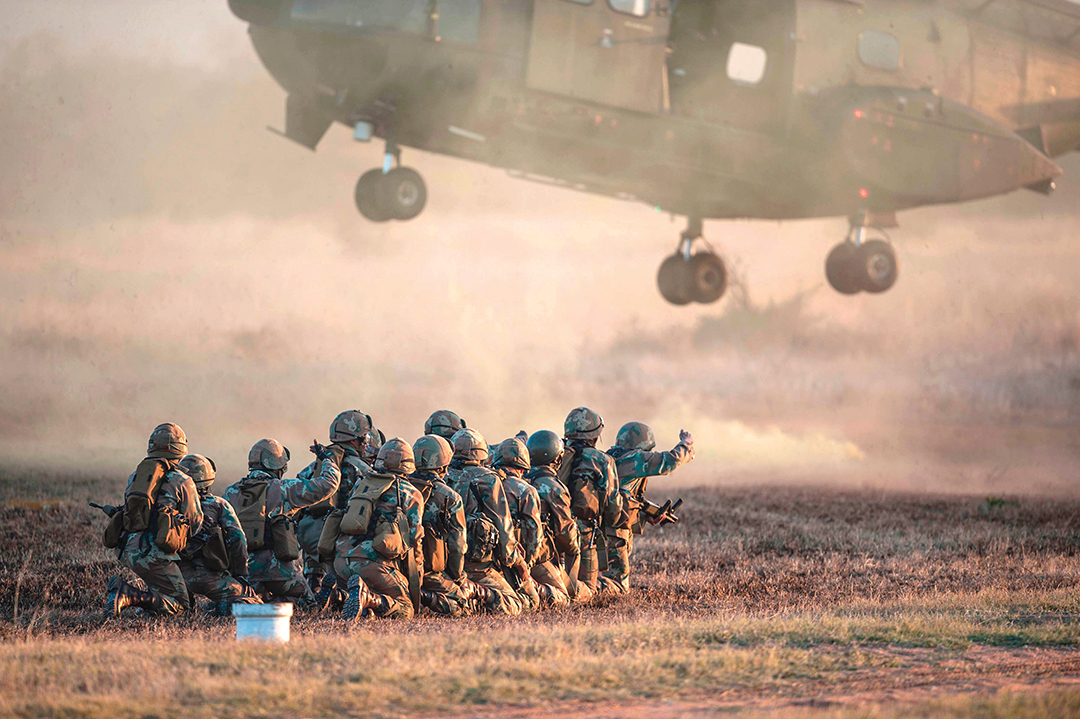
AFP/Getty Images
Preposition stocks for just-in-time logistics support: The African Standby Force (ASF) Roadmap calls for depots to “facilitate storage of material, equipment and end-user stocks to ensure availability when required without being constrained by delays due to long procurement lead-time.” The ASF’s rapid deployment posture — a force that can be deployed within 14 days anywhere on the continent in response to crises — makes “just-in-time” logistics imperative. The depot concept would be a critical enhancer of force readiness by holding essential equipment and supplies in reserve to provide initial operational capability to deploying forces. Moreover, the Continental Logistics Base (CLB) in Douala, Cameroon, would have pre-established contractual arrangements that would let force support planners tap into a supply chain. Resupply of a deployed force, after the initial self-sustainment requirement, could occur using the same contractual arrangements.
Although CLB skeptics may argue that it is a waste of money, the concept, with some retooling for efficiencies and self-help from the government of Cameroon and the AU, can result in a logistics center of excellence, posturing personnel and equipment to support force commanders. It also has the potential to grow into a logistics institution from which African states can model their own concepts of support.
Maintain mission readiness metrics and reward performance: African militaries not engaged in peace operations should constantly prepare for assigned missions. This includes sustaining equipment at a level of readiness the military determines to be necessary to accomplish its goals. An example would be to adhere to the AU standard to have the capability to deploy anywhere on the continent in 14 days. As troop-contributing countries receive assistance from the U.S., the AU, U.N. or other foreign partners, this standard could be applied to incentivize partner militaries to meet that capability logistically. Specifically, if the partner meets and sustains this goal, then they would receive extra assistance to bolster capacity at a higher echelon of command. For example, if an Army logistics company demonstrates the ability to rapidly deploy in 14 days, then they could receive more investment in capacity for a brigade-equivalent force. In addition, other metrics could be jointly developed with a goal that training and equipment support would be contingent on attaining and sustaining an agreed-upon readiness level. Such reporting should be required of countries already committed to contributing forces to a regional standby brigade.
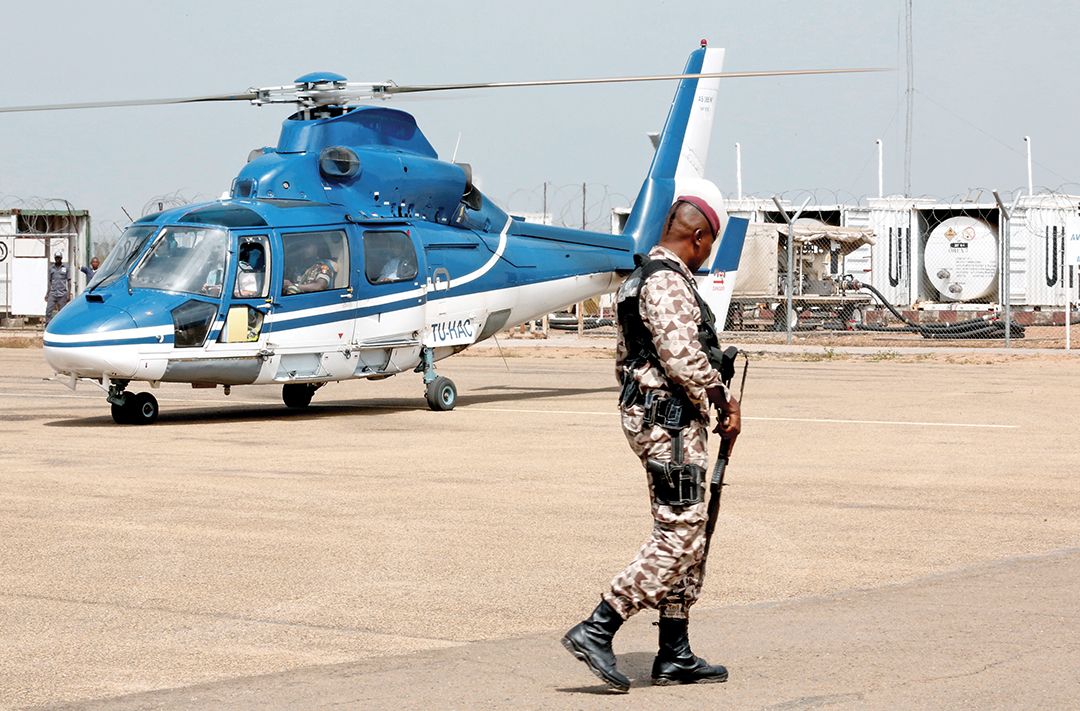
Now is the time: The ideas presented here are not new. Military and civilian leaders, scholars and AU officials have called for similar approaches to enhancing rapid response to crises for years. But recently, momentum has increased and exciting opportunities have arisen. The African Union’s establishment of the African Capacity for Immediate Response to Crises and the increasingly regular collaborations between African countries to address security challenges are positive signs. The time is finally ripe for these recommendations, and they deserve new attention and focus from policymakers who may have written them off earlier as unworkable, too expensive or unrealistic. Although these recommendations will help generate additional momentum and will yield short-term wins, truly improving African logistics capacity requires much deeper reforms, which must be driven and sustained by Africans themselves.
About the Author:
U.S. Air Force Col. Uduak Udoaka is a senior logistician who has served in logistics roles at the Wing, Numbered Air Force, Major Command, Headquarters Air Force, and Geographic Combatant Command levels, in addition to serving as a contingency planner for Operation Iraqi Freedom. His career includes assignments in research and development, acquisition logistics, a Four-Star Commander’s Action Group, deployments in support of Operation Enduring Freedom, peacekeeping operations in West Africa, and political-military security cooperation activities. This article is adapted from a paper he wrote as an Air Force senior fellow at the George C. Marshall European Center for Security Studies, Garmisch-Partenkirchen, Germany.

